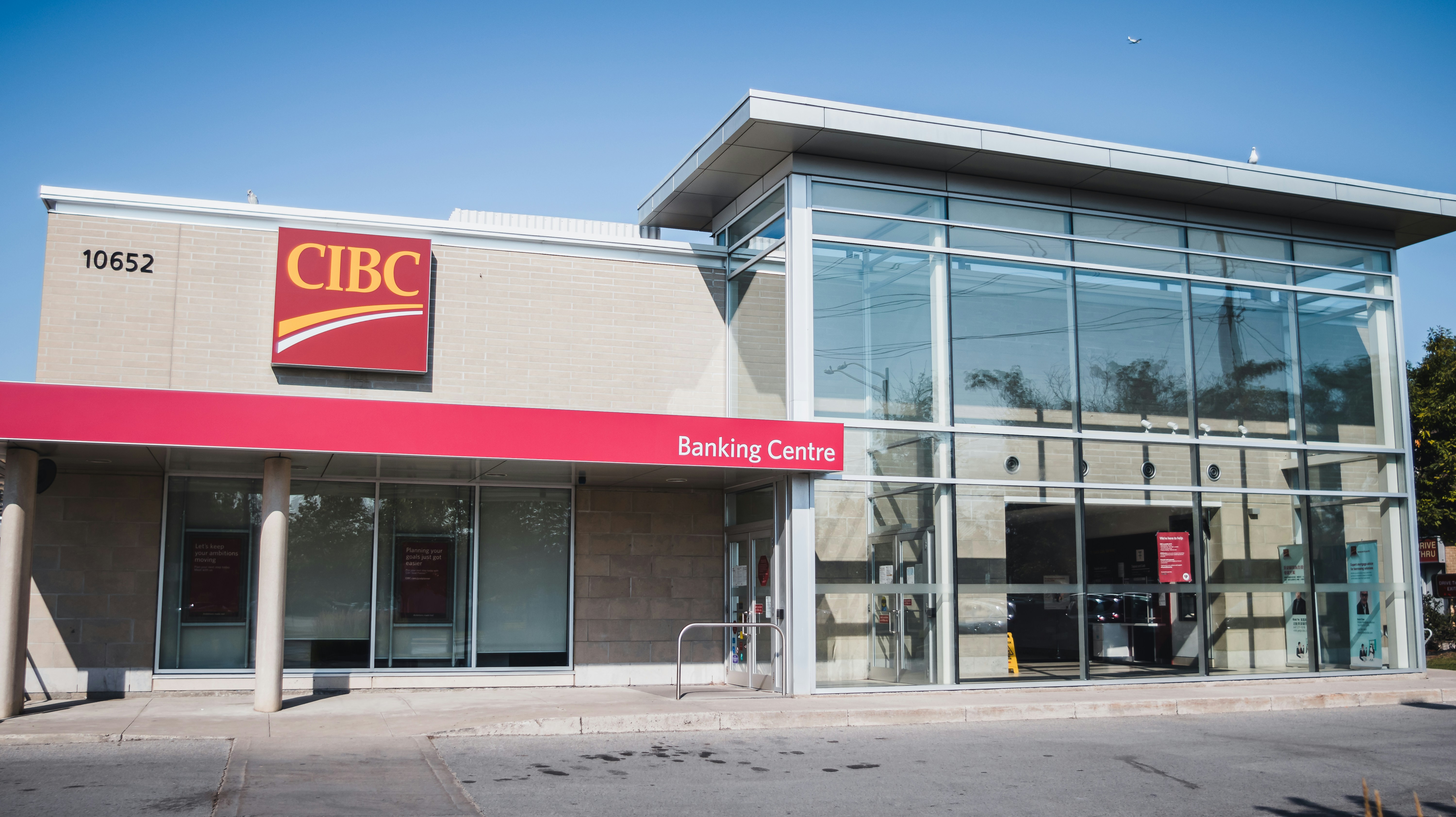
If you’re considering applying for a mortgage loan, one of the first things that comes to mind is your credit score. But what exactly is the minimum credit score required for a mortgage loan? Your credit score plays a crucial role in determining your eligibility for a mortgage, and this article will shed light on the ideal credit score range to aim for in order to increase your chances of securing a loan. With helpful tips and insights, this article will guide you towards understanding what lenders look for and how you can improve your credit score to achieve your dream of owning a home.
Table of Contents
Overview of Credit Scores
What is a credit score?
A credit score is a three-digit number that represents your creditworthiness or the likelihood that you will repay your debts on time. It is determined based on various factors in your financial history, such as your payment history, the amount of debt you owe, the length of your credit history, and the types of credit you have used. Credit scores play a crucial role in determining your eligibility for a mortgage loan and can impact the interest rates you are offered.
Why is a credit score important for a mortgage loan?
Lenders use credit scores to assess the risk of lending money to borrowers. For mortgage loans, the credit score is an essential factor in determining whether you qualify for a loan and what terms and interest rates you may be eligible for. A higher credit score indicates responsible financial behavior and a lower risk of defaulting on the loan. On the other hand, a lower credit score may raise concerns for lenders and result in stricter loan requirements or higher interest rates. Therefore, it is crucial to understand the factors that influence credit score requirements and how they can affect your mortgage loan options.
Factors Influencing Credit Score Requirements
Type of mortgage loan
Different types of mortgage loans have varying credit score requirements. Conventional loans, government-backed loans such as Federal Housing Administration (FHA) loans, Veterans Affairs (VA) loans, and United States Department of Agriculture (USDA) loans all have different criteria for credit scores. Understanding the credit score requirements for each mortgage loan type can help you determine which loan options may be available to you based on your credit score.
Loan-to-value ratio
The loan-to-value (LTV) ratio is the percentage of the loan amount compared to the appraised value of the property. Lenders consider the LTV ratio when granting a mortgage loan. A higher LTV ratio may indicate a higher risk for the lender, while a lower LTV ratio can provide a sense of security. While credit scores primarily influence loan eligibility, a lower credit score may still impact the LTV ratio requirements, making it necessary to have a higher down payment or presenting additional criteria to mitigate the perceived risk.
Debt-to-income ratio
The debt-to-income (DTI) ratio is the percentage of your gross monthly income that goes towards paying debts, including your potential mortgage payments. Lenders assess this ratio to evaluate your ability to manage mortgage payments along with your existing debts. Although credit scores primarily affect loan eligibility, a lower credit score may require a lower DTI ratio to compensate for the perceived risk. Therefore, it is important to manage your overall debt and maintain a healthy DTI ratio, especially if you have a lower credit score.
Down payment amount
The down payment is the upfront payment made towards the purchase of a property and is expressed as a percentage of the total purchase price. While credit scores typically do not directly impact down payment requirements, a lower credit score may result in higher down payment expectations to mitigate the lender’s risk. A larger down payment can demonstrate financial stability and reduce the lender’s exposure to potential losses. Therefore, if you have a lower credit score, it may be beneficial to save up for a higher down payment to increase your chances of loan approval and potentially secure more favorable terms.
Length of credit history
The length of your credit history, including the age of your oldest credit account, average account age, and the time since you last used certain accounts, is an important factor considered by lenders. A longer credit history provides more data for lenders to assess your creditworthiness. If you have a limited credit history, it can be challenging to establish a high credit score, which may result in stricter credit score requirements or less favorable terms. Building and maintaining a positive credit history over time can improve your credit score and strengthen your mortgage loan application.
Type of credit
The types of credit accounts you have, such as credit cards, installment loans, or a mortgage, also impact your credit score. Having a diverse mix of credit accounts can demonstrate your ability to manage different types of credit responsibly. If you have limited credit or a narrow range of credit accounts, it may affect your credit score and potentially result in higher credit score requirements for mortgage loans. Consider establishing a well-rounded credit profile and managing your accounts responsibly to improve your credit score and broaden your mortgage loan options.

Conventional Mortgage Loans
Minimum credit score for conventional mortgage loans
Conventional mortgage loans are not backed by any government agency and are typically offered by banks and other financial institutions. The minimum credit score required for conventional mortgage loans varies depending on the lender and the specific loan program. Generally, conventional loans require a minimum credit score of around 620 to 640. However, it is important to note that meeting the minimum credit score requirement does not guarantee loan approval, as other factors, such as debt-to-income ratio and down payment amount, also come into play.
Credit score requirements by loan type
Within the realm of conventional mortgage loans, different loan programs may have varying credit score requirements. For example, some lenders offer loan programs specifically tailored for first-time homebuyers with lower credit scores. These programs may have more flexible credit score requirements compared to standard conventional loans. It is advisable to check with multiple lenders and explore different loan options to find the best fit for your unique financial situation.
Credit score impact on interest rates
Your credit score can significantly impact the interest rate you qualify for on a conventional mortgage loan. Generally, higher credit scores are associated with lower interest rates, while lower credit scores may result in higher interest rates. This is primarily because lenders view borrowers with higher credit scores as less risky, making them eligible for more favorable interest rates. If you have a lower credit score, it may be worthwhile to take steps to improve your credit before applying for a conventional mortgage loan to secure a more affordable interest rate.
FHA Mortgage Loans
Minimum credit score for FHA mortgage loans
FHA mortgage loans are backed by the Federal Housing Administration and provide an accessible option for borrowers with lower credit scores. The minimum credit score requirement for an FHA loan is typically around 580. However, borrowers with credit scores between 500 and 579 may still be eligible for an FHA loan with a higher down payment requirement. FHA loans are designed to assist borrowers with less-than-perfect credit and can be an attractive option for those who may not meet the credit score requirements of conventional loans.
Credit score requirements by loan type
Within the realm of FHA mortgage loans, there may be additional credit score requirements based on specific loan programs. Some lenders may offer specialized FHA loan programs for borrowers with lower credit scores or unique financial situations. These programs may have slightly different credit score requirements, allowing borrowers with lower credit scores to still qualify for an FHA loan. Exploring various FHA loan options and discussing them with mortgage professionals can help you identify the best fit for your needs.
Advantages of FHA loans for low credit scores
One of the significant advantages of FHA loans is their accessibility for borrowers with lower credit scores. FHA loans provide an opportunity for individuals with less-than-perfect credit to become homeowners. In addition to lower credit score requirements, FHA loans also offer more flexible down payment options compared to conventional loans, which can be beneficial for borrowers with limited savings. However, it is important to consider the potential trade-offs, such as mortgage insurance premiums, when weighing the advantages of FHA loans for low credit scores.
VA Mortgage Loans
Minimum credit score for VA mortgage loans
VA mortgage loans are specifically designed to help active-duty military members, veterans, and eligible surviving spouses become homeowners. Unlike conventional or FHA loans, VA loans do not have a specific minimum credit score requirement set by the Department of Veterans Affairs (VA). Instead, credit score requirements for VA loans are determined by individual lenders. While some lenders may offer VA loans to borrowers with lower credit scores, others may have higher credit score requirements. It is beneficial to explore multiple VA loan options and find a lender that aligns with your credit profile.
Credit score requirements by loan type
While the VA does not establish a minimum credit score requirement for VA loans, lenders can set their own requirements. Some lenders may offer specialized loan programs within the VA loan framework for borrowers with lower credit scores or unique financial situations. These programs may consider factors beyond credit scores, such as income stability and financial reserves. By discussing your specific needs with mortgage professionals experienced in VA loans, you can identify suitable loan options that align with your credit profile.
Benefits of VA loans for low credit scores
One of the significant benefits of VA loans for borrowers with low credit scores is the potentially more lenient credit requirements compared to other loan types. The VA’s focus on assisting military members and veterans often translates into more flexible credit evaluations. Even with a lower credit score, you may still be eligible for a VA loan and benefit from competitive interest rates and favorable loan terms. Additionally, VA loans do not require a down payment in many cases, making homeownership more accessible for individuals who may not have substantial savings.
USDA Mortgage Loans
Minimum credit score for USDA mortgage loans
USDA mortgage loans are offered by the United States Department of Agriculture and are designed to support rural homeownership. The minimum credit score requirement for USDA loans is typically around 640. However, some lenders may have slightly different credit score requirements. USDA loans provide an attractive option for individuals with moderate to low-income levels who may not be eligible for conventional loans but meet the income and property requirements of the USDA loan program.
Credit score requirements by loan type
While there is a general minimum credit score requirement for USDA loans, individual lenders may have varying credit score requirements within the USDA loan program. Some lenders may offer specialized loan programs or flexible credit evaluations for borrowers with lower credit scores or unique financial circumstances. To maximize your chances of qualifying for a USDA loan with a lower credit score, it is advisable to consult with mortgage professionals who specialize in USDA loans and can guide you through the loan application process.
Benefits of USDA loans for low credit scores
USDA loans provide several advantages for individuals with lower credit scores. In addition to more lenient credit score requirements compared to conventional loans, USDA loans offer 100% financing options, meaning you may be able to purchase a home without a down payment. The program also provides competitive interest rates and flexible credit evaluations that consider other factors beyond credit scores. USDA loans can be a viable option for borrowers with lower credit scores and limited savings who aspire to achieve homeownership in rural areas.
Jumbo Mortgage Loans
Minimum credit score for jumbo mortgage loans
Jumbo mortgage loans are loans that exceed the conforming loan limits set by Fannie Mae and Freddie Mac, which are government-sponsored enterprises that provide liquidity to the mortgage market. The minimum credit score required for jumbo mortgage loans varies depending on the lender and the specific loan program. Generally, jumbo loans require higher credit scores compared to conventional loans. The minimum credit score for jumbo loans may range from 680 to 720 or higher.
Credit score requirements by loan type
Within the realm of jumbo mortgage loans, different loan programs may have varying credit score requirements. Some lenders may offer specialized jumbo loan programs for borrowers with unique financial situations or lower credit scores. These programs may have more flexible credit score requirements compared to standard jumbo loans. It is advisable to consult with mortgage professionals experienced in jumbo loans to explore different loan options and determine the best fit for your credit profile.
Challenges for borrowers with low credit scores
Borrowers with lower credit scores may face challenges when seeking jumbo mortgage loans. Jumbo loans are considered higher risk due to their larger loan amounts, and lenders tend to have stricter requirements to mitigate that risk. Lower credit scores can further increase the perceived risk, resulting in higher credit score expectations or additional documentation to compensate. To improve your chances of qualifying for a jumbo loan with a lower credit score, you may need to present a larger down payment, demonstrate significant financial reserves, or explore alternative loan options.
Alternative Mortgage Options
Minimum credit score requirements for alternative mortgage options
In addition to conventional, FHA, VA, USDA, and jumbo mortgage loans, there are alternative mortgage options available for borrowers with low credit scores. These alternative options may have more flexible credit score requirements but can come with different terms and conditions. Minimum credit score requirements for alternative mortgage options can vary widely depending on the lender and loan program. It is essential to thoroughly research and compare these options to find the best fit for your specific financial situation.
Credit score impact on interest rates
Just like traditional mortgage loans, alternative mortgage options also consider credit scores when determining interest rates. Higher credit scores generally result in lower interest rates, while lower credit scores may lead to higher interest rates. If you have a low credit score, it is important to assess the impact on interest rates when considering alternative mortgage options. While these options may provide more accessibility for borrowers with low credit scores, it is essential to evaluate the long-term financial implications and determine the best balance between affordability and the terms offered.
Considerations for borrowers with low credit scores
Borrowers with low credit scores should consider several factors before selecting an alternative mortgage option. It is essential to evaluate the overall cost of the loan, including interest rates and fees, as well as the loan term and monthly payments. Additionally, borrowers should thoroughly understand the terms and conditions of the loan, such as prepayment penalties or restrictions. Seeking guidance from mortgage professionals experienced in alternative mortgage options can help you navigate the process and make an informed decision that aligns with your financial goals.

Improving Your Credit Score
Steps to improve your credit score
If you have a lower credit score and are planning to obtain a mortgage loan, improving your credit score can significantly enhance your chances of approval and secure more favorable loan terms. Here are some steps you can take to improve your credit score:
-
Pay your bills on time: Timely payment of your credit obligations is one of the most crucial factors in improving your credit score. Set up automatic payments or reminders to ensure you meet all payment deadlines.
-
Reduce your debt: Aim to pay off high-interest debts and reduce your overall debt load. This can positively impact your credit utilization ratio, which compares your outstanding balances to your available credit limits.
-
Keep credit card balances low: Maintaining low balances on your credit cards can help improve your credit score. Try to keep your credit utilization ratio below 30% by paying down balances regularly.
-
Avoid new credit accounts: Opening multiple new credit accounts can have a negative impact on your credit score. Minimize the number of new credit applications and focus on improving your existing credit history.
-
Check your credit reports: Regularly review your credit reports to identify and dispute any errors or inaccuracies that may be negatively affecting your credit score. Reporting agencies are required to investigate and correct any errors within a reasonable timeframe.
-
Be patient and consistent: Improving your credit score takes time and discipline. Consistently practicing responsible credit behavior and adhering to good financial habits will gradually improve your credit score over time.
Timeline to achieve a better credit score
The timeline to achieve a better credit score can vary depending on your starting point and the actions you take to improve it. It is important to note that credit score improvements are not immediate and require consistent effort and time. Typically, you may begin to see noticeable improvements in your credit score within several months of implementing positive credit habits. However, significant improvements may take longer, especially if you have a history of delinquent payments or significant negative marks on your credit report. It is advisable to start working on improving your credit score as early as possible to give yourself ample time to reach your desired level.
Benefits of a higher credit score for mortgage loans
Having a higher credit score can offer numerous benefits when applying for a mortgage loan:
-
Increased loan options: A higher credit score expands your pool of available loan options and may qualify you for more competitive mortgage programs.
-
Lower interest rates: With a higher credit score, you are more likely to qualify for lower interest rates on your mortgage loan. This can save you significant money over the life of the loan and result in more affordable monthly payments.
-
Improved bargaining power: A higher credit score strengthens your negotiating position with lenders, as you are viewed as a more reliable borrower. This can potentially lead to better loan terms, such as reduced closing costs or more flexible repayment options.
-
Faster loan approval: Lenders often process mortgage applications more quickly for borrowers with higher credit scores, as they are seen as less risky. This can help expedite the loan approval process and allow you to secure your dream home without unnecessary delays.
-
Lower down payment requirements: Some loan programs may offer more lenient down payment requirements for borrowers with higher credit scores. This can reduce the upfront costs associated with purchasing a home and make homeownership more achievable.
Consultation with Mortgage Professionals
Importance of consulting with mortgage professionals
Consulting with mortgage professionals is crucial when navigating the mortgage loan process, especially if you have a low credit score. Mortgage professionals specialize in assisting borrowers with a wide range of financial profiles and can provide valuable guidance tailored to your specific situation. They can help you understand the credit score requirements associated with different loan types, explore suitable loan options based on your credit score, and assist you in finding potential solutions to improve your creditworthiness.
Customized credit score and loan options
Mortgage professionals can help you determine customized credit score requirements for various loan options based on their experience and knowledge of the lending landscape. They can evaluate your credit profile, income, and financial goals to identify the most suitable loan programs that align with your needs. By tailoring credit score and loan options specifically to your situation, mortgage professionals can increase your chances of obtaining a mortgage loan that meets your needs and objectives.
Assistance in improving credit scores
Mortgage professionals can play a vital role in helping you improve your credit score. They can provide guidance on the steps outlined earlier, offer credit counseling services, and recommend strategies to enhance your credit profile. Their expertise in the mortgage industry allows them to identify effective ways to boost your credit score and address potential obstacles that may arise during the loan application process. By collaborating with mortgage professionals, you can benefit from their insights and increase your chances of achieving a higher credit score for your mortgage loan.
In conclusion, understanding the credit score requirements for mortgage loans is essential for anyone considering homeownership. The factors that influence credit score requirements, such as the type of mortgage loan, loan-to-value ratio, debt-to-income ratio, down payment amount, length of credit history, and type of credit, can impact your eligibility and potential loan terms. Whether you are exploring conventional, FHA, VA, USDA, jumbo, or alternative mortgage options, it is important to take proactive steps to improve your credit score and consult with mortgage professionals to maximize your chances of loan approval and secure the best possible terms for your dream home.










